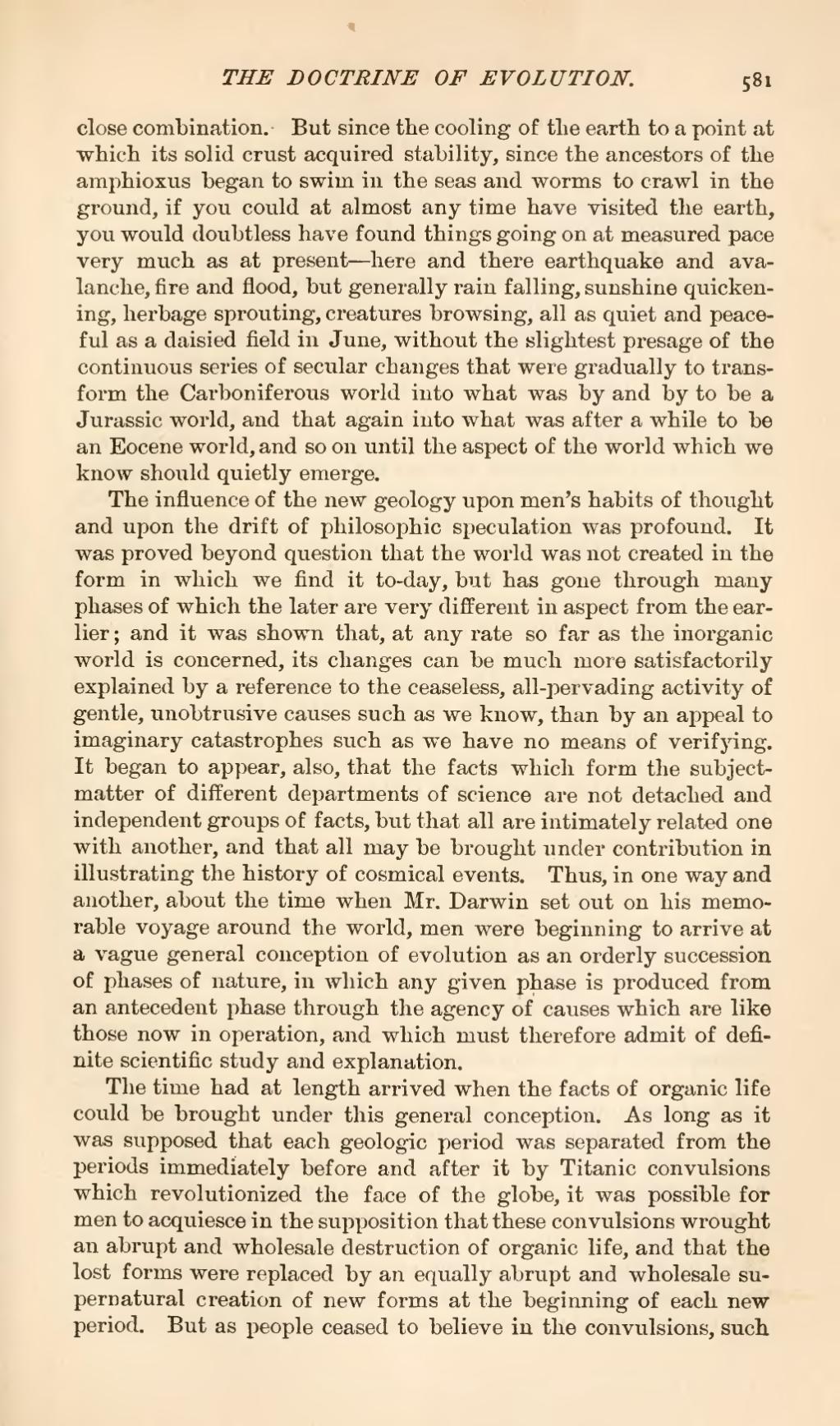close combination. But since the cooling of the earth to a point at which its solid crust acquired stability, since the ancestors of the amphioxus began to swim in the seas and worms to crawl in the ground, if you could at almost any time have visited the earth, you would doubtless have found things going on at measured pace very much as at present—here and there earthquake and avalanche, fire and flood, but generally rain falling, sunshine quickening, herbage sprouting, creatures browsing, all as quiet and peaceful as a daisied field in June, without the slightest presage of the continuous series of secular changes that were gradually to transform the Carboniferous world into what was by and by to be a Jurassic world, and that again into what was after a while to be an Eocene world, and so on until the aspect of the world which we know should quietly emerge.
The influence of the new geology upon men's habits of thought and upon the drift of philosophic speculation was profound. It was proved beyond question that the world was not created in the form in which we find it to-day, but has gone through many phases of which the later are very different in aspect from the earlier; and it was shown that, at any rate so far as the inorganic world is concerned, its changes can be much more satisfactorily explained by a reference to the ceaseless, all-pervading activity of gentle, unobtrusive causes such as we know, than by an appeal to imaginary catastrophes such as we have no means of verifying. It began to appear, also, that the facts which form the subject matter of different departments of science are not detached and independent groups of facts, but that all are intimately related one with another, and that all may be brought under contribution in illustrating the history of cosmical events. Thus, in one way and another, about the time when Mr. Darwin set out on his memorable voyage around the world, men were beginning to arrive at a vague general conception of evolution as an orderly succession of phases of nature, in which any given phase is produced from an antecedent phase through the agency of causes which are like those now in operation, and which must therefore admit of definite scientific study and explanation.
The time had at length arrived when the facts of organic life could be brought under this general conception. As long as it was supposed that each geologic period was separated from the periods immediately before and after it by Titanic convulsions which revolutionized the face of the globe, it was possible for men to acquiesce in the supposition that these convulsions wrought an abrupt and wholesale destruction of organic life, and that the lost forms were replaced by an equally abrupt and wholesale supernatural creation of new forms at the beginning of each new period. But as people ceased to believe in the convulsions, such
